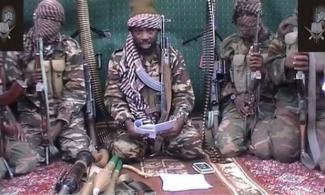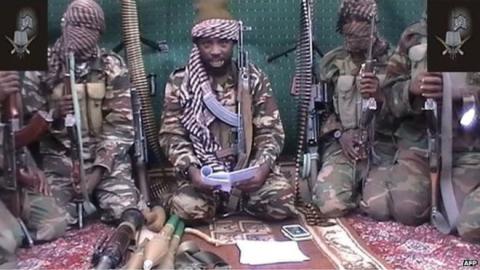
Boko Haram still holds territory in northern Nigeria, according to David Rodriguez, commander of the U.S. Africa Command (USAFRICOM).

Mr. Rodriguez’s statement, addressed to the U.S. Senate Armed Services Committee, contradicts President Buhari’s assertion that Boko Haram does not hold any territory. At an energy summit in the UAE, the Nigerian president stated that the Nigerian Armed Forces and Multinational Joint Task Force (MJTF) had driven the terrorist insurgents from Nigerian territory.
At the Senate hearing, U.S. Senator Angus King of Maine asked Mr. Rodriguez if Boko Haram was growing, but said he knew they no longer held territory in Nigeria.
The commander responded, “Actually sir, Boko Haram does hold some significant territory in northern Nigeria, as do Al-Shabaab in limited areas of Somalia.”
Two weeks before Mr. Rodriguez’s testimony, two policy experts speaking at the U.S. Congress Subcommittee on Terrorism, Nonproliferation, and Trade advised the U.S. government to increase military efforts against Boko Haram.
“It is important to remember that Boko Haram has proved resilient to setbacks in the past. The possibility that it will regroup and rebuild should be the source of critical regional and international concern,” said Jennifer Cooke of the Center for International and Strategic Studies (CSIS).
Alice Friend of the Center for New American Security (CNAS) stated that after Boko Haram founder Mohhamed Yusuf died, “The group seemed to be in full retreat and was inactive for almost a year until Yusuf’s second-in-command, Abubakar bin Mohammad Shekau, released a video and a manifesto announcing his leadership of Boko Haram and threatening revenge on the Nigerian state as well as its Western backers.”
Nevertheless, Dr. Cooke praised the progress made by the Nigerian military and the MJTF, saying, “Many thousands of Boko Haram members, along with a number of its senior leaders, have been killed or captured, and the group no longer appears to have access to the kinds of transport and equipment — tanks, armored vehicles, Toyota Hilux trucks — that it has had in the past.”
Dr. Cooke also pointed out that the group’s leader, Abubakar Shekau, has been silent.
“The group’s media operation — which reportedly received technical assistance from ISIL — has gone largely quiet, and there have been no video appearances by erstwhile leader Abubakar Shekau (or by any of his alleged imposters) since early 2015.”
Similarly, Ms. Friend said that Boko Haram is showing signs of weakness, emphasizing that the group is focusing on kidnapping women and girls and terrorizing public spaces rather than capturing territory.
“Their use of kidnapped women to execute suicide attacks, while tactically advantageous (providing greater access even to secured areas), also suggests a shrunken supply of adult male foot soldiers.”
Despite the organization’s weaknesses, the two policy experts agreed that the U.S. and international community need to take further steps to defeat Boko Haram.
Former US Ambassador to Nigeria, John Campbell, shared his thoughts with a SaharaReporters correspondent on the progress the Nigerian military has made in the fight against Boko Haram.
Mr. Campbell stated that “we should be careful with how we use terms like ‘hold territory’ because of how many ways it can be interpreted.” He illustrated the complicated nature of holding territory by referencing how the Nigerian military and its allies dislodge Boko Haram from territory, but that when soldiers leave the terrorists later return.
Mr. Campbell did argue that he felt “Boko Haram was very far from being defeated” and that not nearly enough progress has been made by Nigeria and its allies to this end. Part of the challenge, according to him, is how “the media portrays Boko Haram as a terrorist movement like those in the Middle East” but that the administration of Boko Haram is unclear.
“Boko Haram seems to be decentralized with no apparent command and control structure,” according to Mr. Campbell.
Ms. Friend believes that Nigeria would benefit from greater U.S. security assistance programs, while Dr. Cooke advocates that the U.S. exerts more diplomatic pressure on the Chad Basin countries to provide more support to counterterrorist efforts.